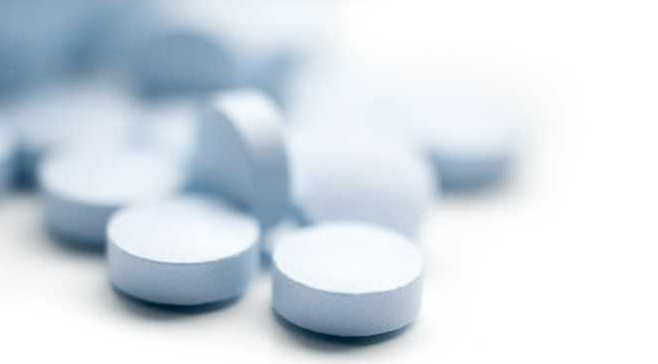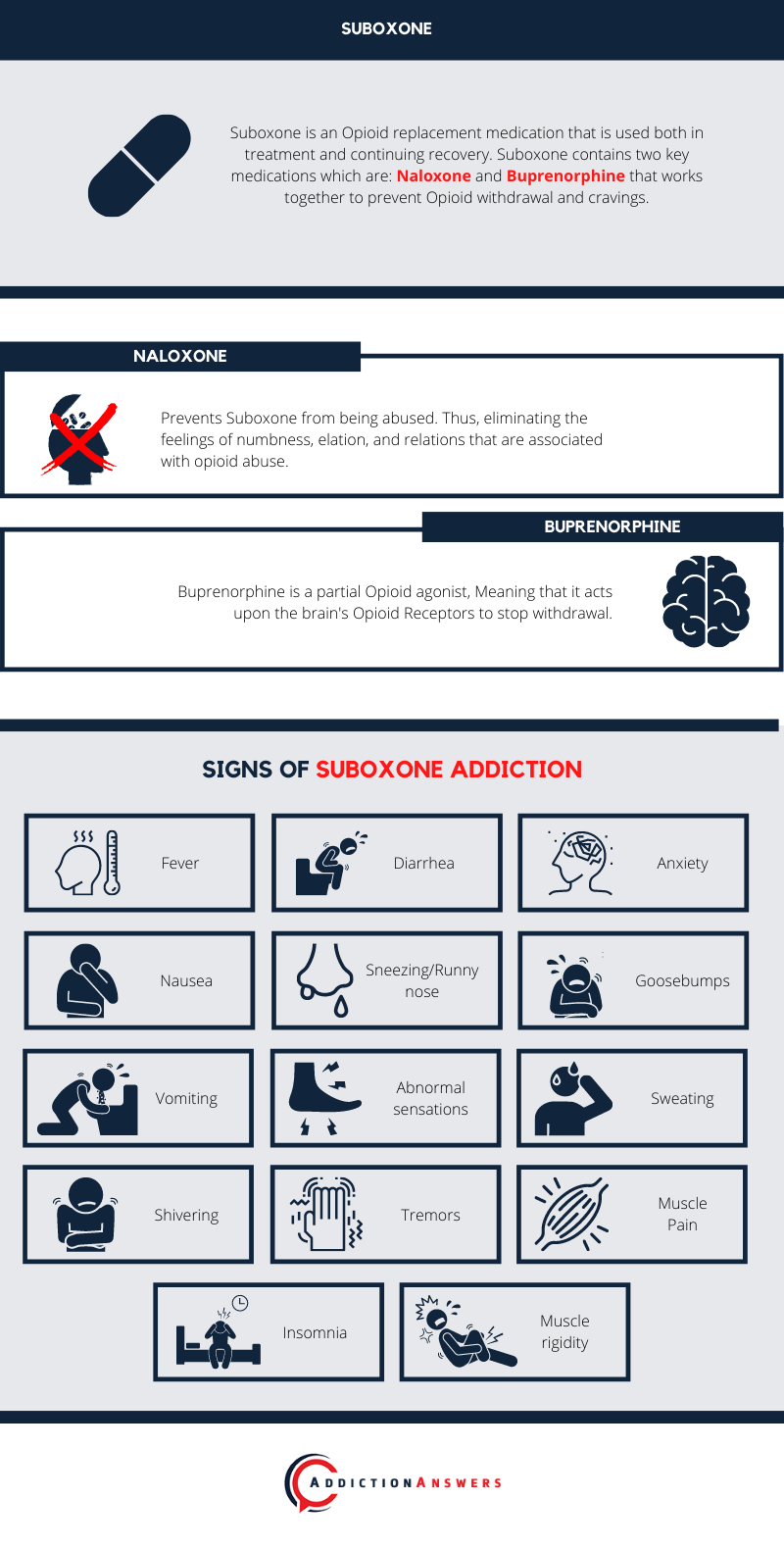Table of Contents
Suboxone is often used to treat opioid addiction withdrawal. But can somebody get addicted to Suboxone during treatment?
Well, the short answer is yes. But there’s so much more to this question. In essence, any substitute that helps taper down a previous addiction can become addictive on its own.
In this article, we will cover everything you need to know about getting an addiction to Suboxone. So that you can find out if you’re addicted, and how you can get help.
Whenever you’re ready to find out why Suboxone is addictive, keep reading.
Table of Contents
Suboxone: What Is It?
The medication consisting of buprenorphine and naloxone is called Suboxone.
Naloxone is used to reverse opioid effects. Thus, eliminating the feelings of numbness, elation, and relations that are associated with opioid abuse. Individuals who use opioids are practically always doing it for the high, and if the high is less likely to happen, the appeal starts to fade away.
Consequently, buprenorphine is an opioid agonist. It basically depreciates the urge to use, as well as reduces withdrawal symptoms. Most other opioid replacement substances are prescribed in inpatient centers by addiction specialists. Whereas, Suboxone can be acquired from a regular physician.
The problem with Suboxone is that as a treatment for addiction, it can also be quite addictive on its own. Misuse of the medication will lead to psychological and physical dependence. If individuals are prone to substance abuse, it’s best to avoid this medication altogether.
Nonetheless, many recovering additives are getting Suboxone, and often misuse it. The results of this are quite daunting, to say the least.
Can You Get Addicted to Suboxone?
On its own, the effects of buprenorphine are not intense. The onset is progressive and the duration is long. This makes the substance less addictive than other opioids like morphine or heroin. The risk of addiction from buprenorphine is low.
Despite the use of the drug for maintaining dependence on opioids, all dependency can be solved by tapering the dosage as patients progress through their treatments. Those who are treated with it, are in fact more likely to get addicted on average.
It’s quite uncommon for someone to show compulsion of consumption with the medication. The possibility is still there, but to get addicted to pleasure is possible for all people.
Naloxone works only if some opioids are within the body. It counteracts the side-effects and depressing potential of opioids on the central nervous system and lungs. Thus, one can maintain proper breathing.
There is no abuse potential, and it’s used successfully with people who overdosed on opioids substances or heroine. However, the entire compound of Suboxone is addictive, so it’s important to understand that even though Naloxone is part of it and it’s not addictive.
The entire compound has a very vivid abuse potential, especially for people who are recovering addicts.
Signs Of Suboxone Addiction
The best way to determine if you are or not addicted to Suboxone is to stop it cold turkey. The reason behind this is that when you stop it instantly if you are addicted, withdrawal symptoms are imminent.
If withdrawal symptoms set in, the chances that you have a physical or psychological dependence is quite high. Some withdrawal symptoms associated with Suboxone are, but not limited to:
- Fever
- Diarrhea
- Anxiety
- Nausea
- Sneezing/Runny nose
- Goosebumps
- Vomiting
- Abnormal sensations
- Sweating
- Shivering
- Tremors
- Muscle pain
- Insomnia
- Muscle rigidity
For the most part, these are all physical symptoms of addiction to Suboxone. So if you stop the drug, and you experience some of these feelings, you are most likely dependent on the substance then.
There are other symptoms and signs as well. Most of them have to do with the psychological part of the addiction, but they also consequently prove physical addiction.
For instance, you might be overly occupied with drug acquisition to a point where it takes up lots of your time in life. You might be over-occupied with consuming the drug, even when concerned about the consequences. You might feel an urge to consume the drug in ways that it was not prescribed in.
How people respond to addiction is quite different. Ultimately, it’s up to you as the individual to determine if your use has become addictive. No one can tell you how your body feels better than you do. Any time that you consume a drug, there is a possibility of getting addicted.
Pay attention to the change in your body, and speak to a health specialist if you feel something is happening out of the ordinary. Suboxone addiction is serious and it can get quite damaging to your health. If you feel that you are improperly using Suboxone, seek out help immediately so you can resolve the addiction ASAP.
Treatment for Addiction
Some people consider that Suboxone treatment is the process of changing one addiction for another. And if the medication is abused, that’s exactly what will happen. If you find that you are struggling with addiction, help is waiting for you.
As with any drug addiction treatment, monitored medical detox is the first step. Once one has passed through withdrawal with Suboxone, they can enter a residential treatment program to continue their successful road to recovery.
If you’re addicted to Suboxone and interested in Suboxone addiction treatment, get in touch with us and we will gladly assist you in your journey. Don’t hesitate to ask for help, we understand the challenge and we are here to help.
Get Help Today
Don’t go through the process of recovery alone. There are people who can help you with the struggle you’re facing. Get in touch with one today.




